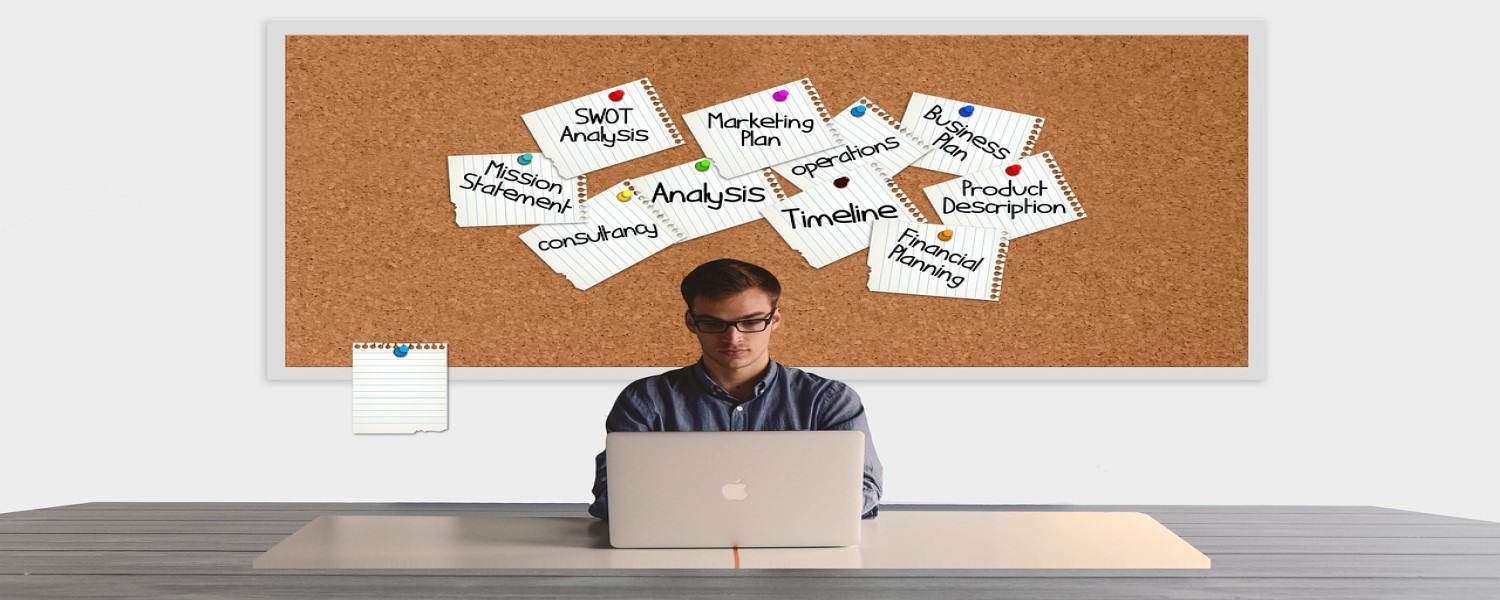Time Boxing: This is How to Knock Out More Focused Work!
Today’s post is going to introduce a concept that I have personally used to get more focused work done. And just recently I came to find out that there was a name for it – time boxing.

I am not the first person to write an article on time boxing; not by any stretch. But then again Steve Jobs wasn’t the first person to invent any of the electronic gadgets he was famous for, he just took the best of what was out there, then tried to improve upon it in his own way. So, that is what I am going to try to do here, I will attempt to write a different article on time boxing by making it entertaining and actionable. I will also try to integrate some other time management principles that we have covered in previous blog posts that you can use alongside time boxing.
Ok, So What Exactly is Time Boxing?
Time boxing is exactly what it sounds like. You allocate chunks of time on your calendar to different tasks on your to-do list, then you work uninterrupted on that task during that chunk of time. Sound simple? It is, and it works.
Let’s jump back to how I first started using time boxing, even though I didn’t know there was a name for it. Most of my days would consist of me spending an inordinate amount of time in pointless meetings that seemed to quickly fill up my calendar. Since I spent most of the workday in meetings I would end up having to stay late and/or work weekends just so I could get my real work done. Not good!
Finally, I had enough…
…and decided to do something about it. I went to my Outlook calendar and started blocking off periods of time for actual work – usually in the mornings since I am a morning person and am more focused then. I then asked my administrative assistant not to schedule any meetings during that time unless it was my boss (tough to say no to the CEO) or a special case.
It Worked Like a Charm!
I was able to get a ton of focused work done in the mornings, which left the afternoons for meetings for when my focus and energy waned a bit.
Why Does Time Boxing Work?
There are a few reasons that time boxing works, it:
 Holds you accountable – When you have an appointment set up with someone you usually keep it, why is that? Because you don’t want to be a flake and you don’t want to let the other person down. The same logic holds here, but instead, you are setting an appointment with yourself.
Holds you accountable – When you have an appointment set up with someone you usually keep it, why is that? Because you don’t want to be a flake and you don’t want to let the other person down. The same logic holds here, but instead, you are setting an appointment with yourself.
 Forces you to estimate how long something takes – Instead of just starting a task without thinking about how long it takes, time boxing forces you to estimate its length. This means you are more unlikely to overcommit.
Forces you to estimate how long something takes – Instead of just starting a task without thinking about how long it takes, time boxing forces you to estimate its length. This means you are more unlikely to overcommit.
 Neutralizes Parkinson’s Law – If you are unfamiliar with Parkinson’s Law, it basically states that a task expands to fill up the space allocated to it. Therefore, allocating a block of time to a task (providing you don’t overestimate it) means you are more likely to get it done due to the fact you know you only have that much time.
Neutralizes Parkinson’s Law – If you are unfamiliar with Parkinson’s Law, it basically states that a task expands to fill up the space allocated to it. Therefore, allocating a block of time to a task (providing you don’t overestimate it) means you are more likely to get it done due to the fact you know you only have that much time.
 Allows you to keep track of your time – That way you can go back later and use it as a tool for reflection. You can look at your calendar and determine if you are spending your time doing the right things.
Allows you to keep track of your time – That way you can go back later and use it as a tool for reflection. You can look at your calendar and determine if you are spending your time doing the right things.
Macro Time Boxing vs. Micro Time Boxing
Time boxing can be used on both a macro and micro level.
At a macro level, you can use time boxing to schedule long-term things by the year (such as doing an Executive MBA that takes 2 years), a month (your favorite mother in law wants to spend a month with you) or week (taking time off for vacation).
On a micro level is where you will use it on a daily basis to make progress on that ever-important to-do list. Depending on the task you are trying to accomplish, you can schedule time boxes by the hour or even by the minute (Tesla and SpaceX founder Elon Musk is said to utilize 5-minute time boxes). Do whatever works for you.
How to Use Time Boxing – Use It or Lose It
Now for the actionable part of this post, how to use time boxing in your life:
(1) Figure out what you need to do i.e. your list of tasks.
(2) Next, prioritize them. One method that you can use to prioritize things is the Eisenhower Urgent-Important matrix which we discussed in a previous post.
(3) Figure out how long each will take.
(4) Assign blocks of time for each, the length of the box will be proportional to the estimated length of the task. Remember to assign only 1 task per box.
(5) Execute the task.
(6) Move on to the next box.
Helpful Hints and Things to Remember:
Saying No
You are going to have to get good at saying no to things, people, and whatever else tries to interrupt your time boxing. Being unapologetic with your time is not being a jerk; it is necessary to get stuff done.
Limit Distractions
Another thing you will need to do is limit distractions such as social media, cell phones, etc.
Utilize Best Time of Day
You may want to schedule time boxes based upon the time of day when you can do them the best. For example, many people have less energy in the early afternoon, making it ideal for more robotic and less intellectual activities like sending emails or doing administrative tasks. Recall a previous post I wrote on the best time to do things based on science.
Avoiding Parkinson’s Law
Make sure you give yourself enough time, but not too much time as you don’t want to be a victim of Parkinson’s Law!
Learn on the Fly
As you do more time boxing you will get better at it. You will learn the best times to do things, and how long things take, so you are allocating the proper amount of time.
Be Flexible
There are going to be times when a crisis or emergency pops up. It happens, be flexible, if something pops up, simply move your time boxes around.
Use Batching!
Utilize the concept of time batching, which involves grouping similar tasks together – which we covered in a previous post. This way you aren’t wasting time jumping from task to task. For example, setting a time box for doing emails instead of doing them at all different times.
Where to Use Time Boxing
You can use time boxing in various places – at work, at home, when you are studying, etc.
Don’t Just Time Box Tasks…
Remember not just to time box tasks, you will also want to time box other stuff. Some examples are reading, exercises, date nights, time with friends, time to sleep!
Plan Ahead!
I also recommend not doing your time boxing at the last minute. Do it in advance. Ideally, do it the night before. You may even want to make it part of your bedtime routine!
Think and Reflect
Lastly, block off time to plan and think and reflect and read Prime Your Pump!
“So, Do You Still Get Your Assistant to Block Your Calendar?”, you ask.
Good question. I am no longer at that job. You see my boss who was CEO left, and the new CEO brought in his own people. And as usually happens, they wanted to bring in their own team. So, I was given the boot. It happens, such is life and expected when you are in those types of positions.
It turned out to be a blessing and has allowed me to pursue my passion for writing. I truly believe things happen for a reason.
So, I was totally ok with what happened to me, the problem is that my new boss told the people who worked under me that they were all safe after my departure and had nothing to worry about. Sadly, he was not being upfront with them and proceeded to lay them all off as well, less than a month later. Not cool and not a good way to treat people.
So, to answer your question, no, my assistant no longer blocks my calendar…I block my own calendar these days and still use time boxing, just for different tasks.
In case you were wondering whatever happened to the guy who got rid of me and my team? Turns out he only lasted a year in his position before he was asked ‘to find his happiness elsewhere’…
Well, I guess on the bright side for him he now has more time to read blog posts on primeyourpump.com! And as a matter of fact, he may want to especially check out the one on the 12 Laws of Karma! 😉
Until next time…work by the block not by the clock, watch out for karma, and as always…PYMFP!
–Rick

When to Use Time Boxing:
 When you need to get more focused work done.
When you need to get more focused work done.
What Do You Think?
 Do you use or have you ever used time boxing? How did it work for you? Are there any other areas of your life where you use it other than the ones mentioned above? Please share in the comments below!
Do you use or have you ever used time boxing? How did it work for you? Are there any other areas of your life where you use it other than the ones mentioned above? Please share in the comments below!
If you enjoyed this post, it would mean the world to us if you shared it with people you care about via any of the social media platforms below!
Popular Previous Posts:
How to Use Conflict Resolution Strategies in Your Relationships
This is How Color Psychology Can Influence Your Life
Important Numbers and What They Have to Do with Gronk
I Tried 10 Bedtime Routines of Successful People and This is What Happened
This is How to Reverse Engineer Your Elephant-Sized Goals
References
15 Secrets Successful People Know about Time Management: The Productivity Habits of 7 Billionaires, 13 Olympic Athletes, 29 Straight-A Students, and 239 Entrepreneurs by Kevin Kruse – https://www.amazon.com/Secrets-Successful-People-Management-Straight-ebook/dp/B016FPTIZ6
Master Your Time Master Your Life: The Breakthrough System to Get More Results, Faster, in Every Area of Your Life by Brian Tracy
If you enjoyed this post, it would mean the world to us if you shared it with people you care about via any of the social media platforms below!
Popular Previous Posts:
Sturgeon’s Law: This is Why 90% of Everything is Crap
Making a Change: 5 Ways to Stop Backsliding!
Charismatic Body Language: 4 Ways to Adopt it in Your Life!
How to Spend Less: The Minimalist Approach to Money

